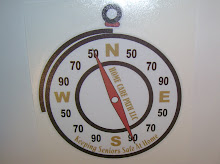In 1990 the (ADA) Americans With Disabilities Act requires businesses and places of public accommodation to be accessible to folks with physical, sensory, and or mobility problems. This encouraged new or remodeled buildings to accommodate individuals with functional deficits. This is paving the way for individuals with long term chronic (nursing home residents) disabilities to reside in the community.
The State of Wisconsin assumed authority for the delivery aspect of medical assistance paid community care. This lifted authority from the individual Wisconsin Counties and placed it with State administered (MCO) Managed Care Organizations. The Managed Care Organizations served multiple Counties now called State regions.
The Managed Care Organizations employed programs called Wisconsin Partnership Program, The Family Care Program, and IRIS I respect I self direct Program. These programs coordinate services for individuals who once required a nursing home stay , to safely be served in their chosen community residence. This is simply the State of Wisconsin managing the outflow of public health dollars by shifting care in to the community. Care outside the hospital and nursing home is delivered at a lower expense.
Health care delivery is consistently being pushed from the hospital and nursing home settings in to the community. Along side this is the States initiative to stop paying skilled medical staff to perform non-medical tasks. In the hospital setting this is communicated by legislators establishing laws that require medical providers to be paid the same amount regardless of the delivery setting the procedure is being performed. If the procedure has been proven to be safely performed in the community clinic at a lower expense, the hospital will only receive the lower rate. This is flattening care costs.
Act 10 fragments the traditional hospital staffing model and encourages fiscal representatives to determine through cost comparison core services and privatized services. This is moving health delivery models to separate skilled medical care from non medical tasks employed with their operation. The budget of a community hospital dependent upon a greater portion of public money (Medicare, Medicaid) to operate may need to privatize non medical tasks to maintain financial viability.
This means medical care will be reimbursed at a community rate whenever deemed safe. Very limited availability of public money for staff to perform non medical tasks. This Act 10 appears to be a symptom of this larger change taking place across the health care delivery market.
Home Care Path celebrates 4 years of successfully serving seniors in South
Twitter https://twitter.com/seniorcareWI
App http://appsmakerstore.com/appim/j6kcdet8xvwk4s
Blog http://homecarepathseniorcare.blogspot.com/
Home Care Path www.homecarepath.com and the Wisconsin PATH ALONG model deliver an advanced supportive care service. Helping seniors in the home, with clinic visits, at the hospital, nursing home and assisted living facility. Helping seniors downsize with a move in to an adult child's home. 2014 rates are 20.00 per hour. Simply call 608-432-4286 to schedule an interview. We can be there when you are working. We accept long term care insurance. Services can be tax deductible. Help with resources and the transition from private payment to public funded programming. Valuing home and human life

No comments:
Post a Comment